Knowing how to prepare for a Dutch winter can be daunting, especially if you’re completely unfamiliar with the weather here. But adjusting to your new climate needn’t be so scary.
I arrived here from South Africa and had time to ask locals for advice on how to shop for proper cold-weather clothes before Dutch winter hit. Even so, my first winter here was incredibly tough.
In retrospect, though, there were a lot of simple changes that I could have made to avoid a lot of icy misery.
If you’d like to avoid making the same mistakes that I did, here’s a handy guide on everything you need to know about surviving a Dutch winter! ☃️
This post might have affiliate links that help us write the articles you love, at no extra cost to you. Read our statement.
What to expect from a Dutch winter
Dutch weather is always somewhat sporadic and unpredictable, but one thing is certain: there will always be a lot of rain.
You’ll know the cold season is on its way when the days get shorter, greyer, and colder. By the time winter is in full force, the sun will be coming up at around 9 AM and going down at around 4 PM.
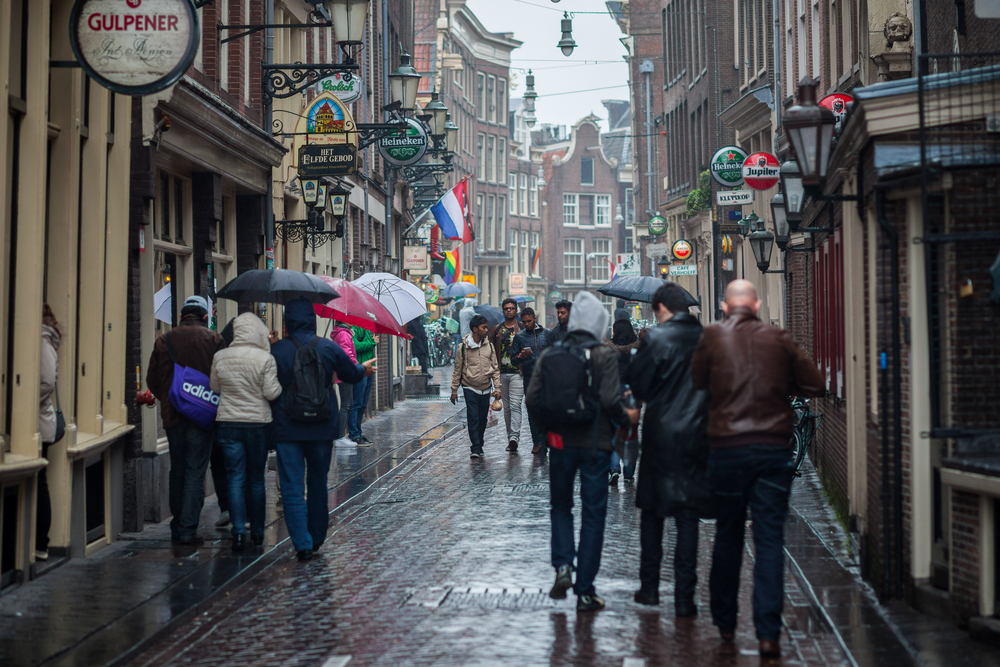
Average temperatures will be around three degrees Celsius (37.4 F), dropping to zero (32 F) (and below) at night and rising to a max of about six degrees Celsius (42.8 F) during the day.
So, with those almost-freezing temperatures, will our spirits at least be lifted with some drifting snow?
Well, in the past, it wasn’t uncommon for it to snow for a couple of weeks every year in the Netherlands. In recent years, however, this has become increasingly rare. (Thanks, global warming! 🙄)
READ MORE | Why the Netherlands will never have an ‘Elfstedentocht’ (Eleven Cities Tour) again
Though that may sound depressing, the Dutch are experts at making the wintertime a bright, festive delight — with sugary comfort foods and cosy evenings inside.
Knowing how to dress during this time is the key to surviving — and having fun — during a Dutch winter. 👇
What to wear to survive winter in the Netherlands
Making sure you’ve got the right clothes for the season is arguably the most important thing. Luckily, however, you have plenty of choices when it comes to picking out garments in the Netherlands.
My biggest tip for winter clothes is to buy things here, and not before you arrive — unless you come from a cold country. What looks and feels warm enough at home simply won’t be the case when you get here.
In addition to this, be sure to stock up on your winter gear before November hits, as these will typically be cheaper during the warmer months.
Even though winter technically only starts in December, if you come from a hot country, you’ll really start to feel it around the end of October, which is when you’ll see coats popping up in all the stores.
Are you looking for some handy tips on what to consider when shopping for warm winter clothing? I’ve got you covered! 🙌
The art of layering
This might sound obvious to those from colder climates, but to beach babies like me, it was not.
Staying warm in the winter is all about layering. You will constantly be moving from heated interiors to the freezing outdoors, and you need outfits that can accommodate both.
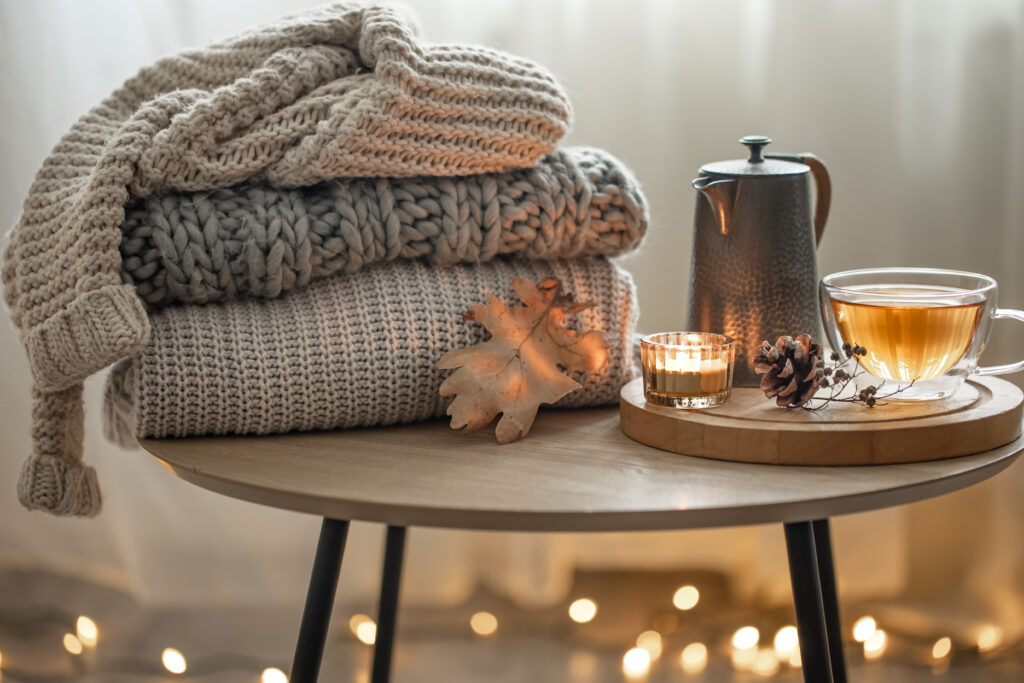
Outside, you’ll need your coat, sweater, shirt and maybe even an under-shirt. Inside, on the other hand, you’ll likely want something suitable for around 19 degrees Celsius.
Need some inspo? Here’s an option for women that’ll do a brilliant job of taking you from early autumn through winter:
A lightweight mockneck sweater from Amazon Essentials
You can’t go wrong with Amazon Essentials for affordable, comfortable knits that you can wash and wear over and over again.
Featuring a cotton/polyester blend, these sweaters are true-to-size, durable, and come in a range of flattering, neutral shades that are perfect for layering under cardigans.
And here are a few options for men’s sweaters to take you from early autumn to winter:
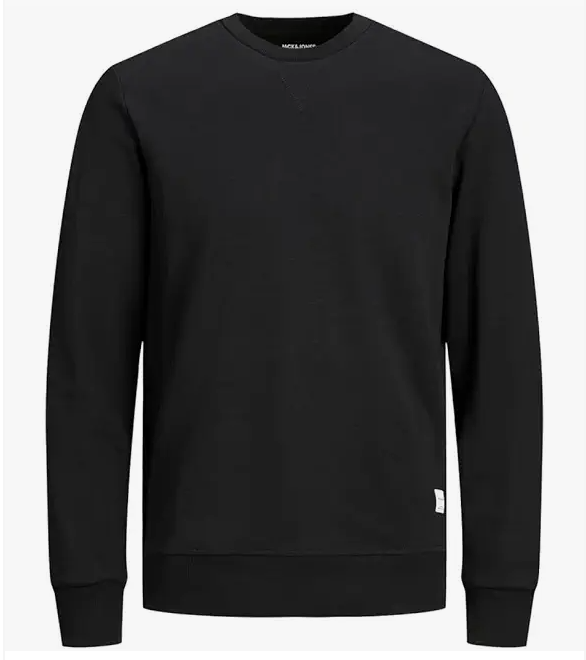
This simple crew neck sweater from JACK & JONES
Made from a comfy cotton blend, these best-selling crew neck sweaters are perfect for layering but can also be worn on their own during autumn.
Are you hoping to dispel those winter blues with a pop of colour? In addition to a range of neutrals, these sweaters also come in a light orange, rich burgundy, and bright blue.
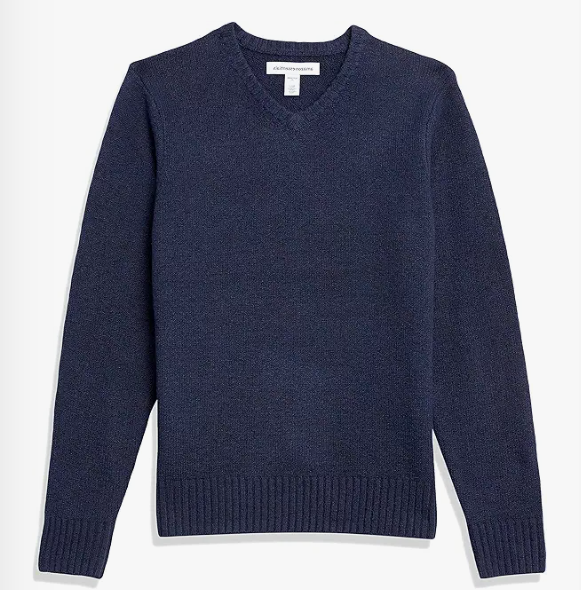
A stylish v-neck sweater from Amazon Essentials
If you’re planning on layering your sweaters over shirts, then this v-neck sweater is a wardrobe must-have.
Machine-washing is easy-peasy with this soft cotton/polyester blend, but the fabric is also thick enough to keep you warm and toasty.
Having sweaters and cardigans of different thicknesses is also key, depending on how deep into winter you are. For the depths of winter, look for cable-knit sweaters made out of cashmere, angora, or even merino wool (if you’re layering).
You might be tempted to buy thermal layers, but personally, I never wore mine because I quickly realised they made me too hot when I was inside or biking. If you‘re more sensitive to the cold, however, then you may find them handy.
Jackets and coats
Okay, this point is critical.
Do not do what I did — buy a €50 polyester coat from H&M. You have to accept that if you’re going to keep yourself properly warm in this country, you’ll need to invest in quality.
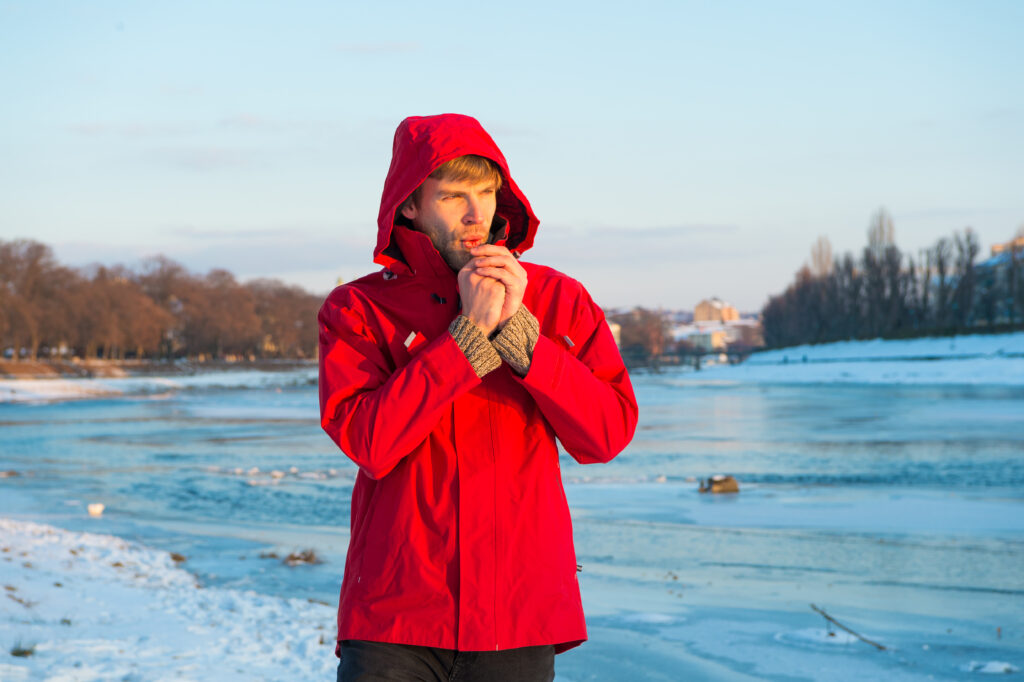
A decent new coat will cost around €100 or more, and spending the extra money will be worth it for your health and sanity. But buying second-hand is always a great option if you need to save money.
Before you make the investment, make sure your potential coat or jacket passes the following tests:
Fabric
First and foremost, check what the coat is made from before you buy it. I don’t care how fluffy it is; polyester will never keep you as warm as wool, cotton, or down feathers (around 800 fill is good for winter).
Any of the ski brands with fancy technologies are also quality options. Look out for insulation technologies like 3M Thinsulate, PrimaLoft and Under Armour’s ColdGear Infrared.
If you’re looking for some options from Under Armour, I can recommend:
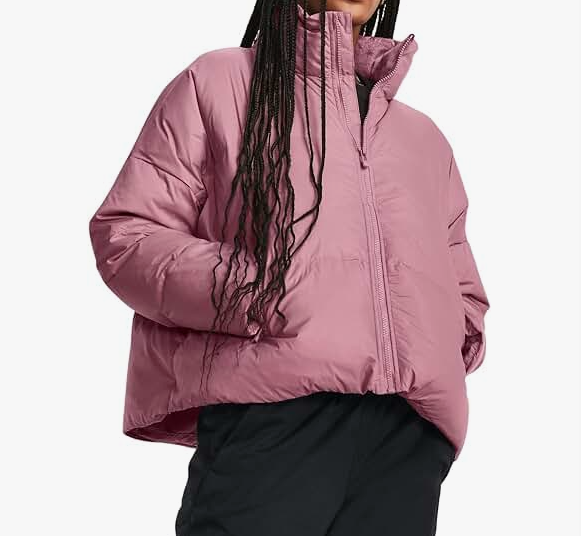
A ColdGear Infrared puffer jacket from Under Armour (women’s)
Let’s face it, very few people would be buying a jacket in a dowdy design — no matter how warm it purports to be.
Luckily, there are many jackets (like this Under Armour puffer) that combine trendy aspects with staying toasty warm.
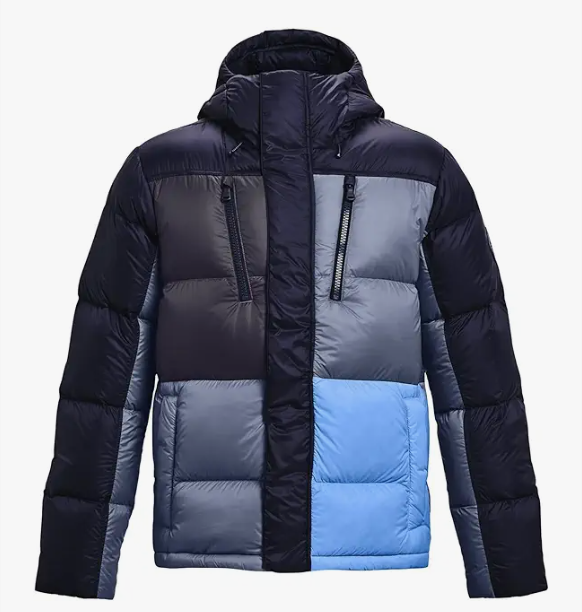
A ColdGear Infrared down jacket from Under Armour (men’s)
It’s rare to find something on the more affordable end of Under Armour’s ColdGear Infrared range, which makes this jacket a bit of a steal.
It’s also lightweight enough to keep up with your biking/jogging/walking habits — whilst providing all the warmth you’ll ever need on a cold, Dutch winter’s day.
Coats made from these materials are often used for ski jackets because they are more compact, lighter in weight, and keep you warm in snowy weather.
Nylon, flannel, cashmere and hemp will also do the job, but aren’t as popular.
Length
Your jackets and coats need to be cycling-friendly, which means turning yourself into a walking sausage is not going to work.
Either buy a coat that goes down to your jean pockets (mid-length) or a longer coat with a reverse zip or buttons that you can open up the bottom when cycling.
Rain and snow proof
Make sure the coat is waterproof and not just water-resistant. If the rain decides to bucket down, a water-resistant coat will simply not be enough — and you’ll quickly find there’s nothing worse than getting wet in the cold.
A waterproof coat will also prevent you from getting wet in the snow (should the snowflakes decide to grace us with their presence).
Top tip: Read the labels on how your coat should be cleaned! I once ruined a coat by throwing it in the washing machine. Not fun.
Shoes to wear during winter in the Netherlands
In the lead-up to winter, you’ll need light, waterproof shoes like sneakers or leather boots.
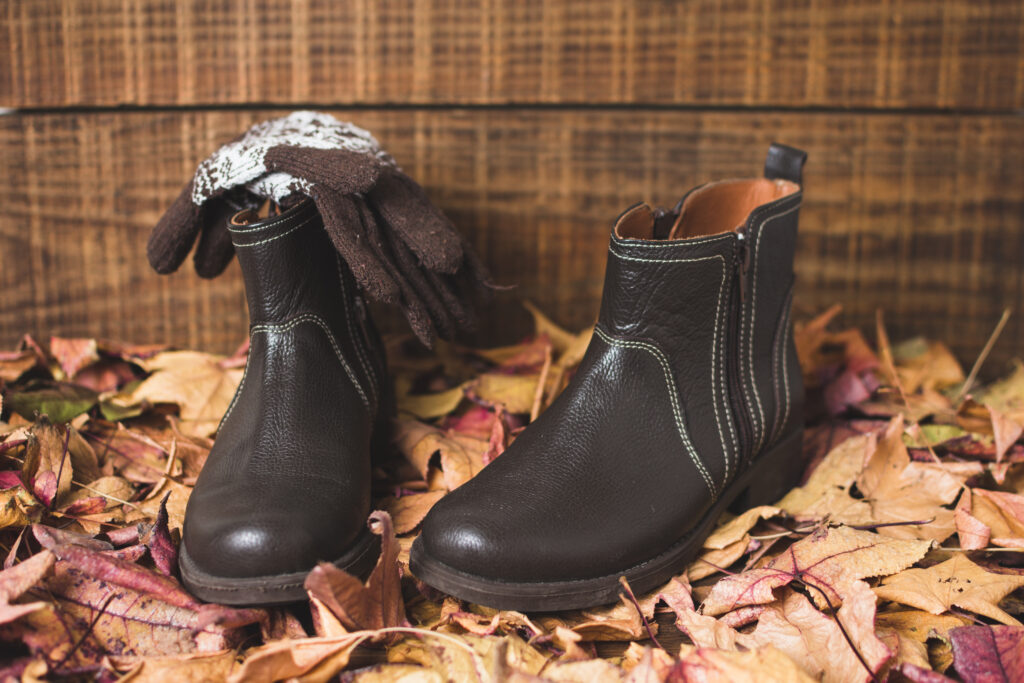
But for winter, get some thicker boots (fluffy insides are great!) which should also be waterproof.
Thick soles with good grip are important, so if there’s any ice, you don’t slip and fall.
Accessories you’ll need in a Dutch winter
The cold air creeps into every opening it can find, and any exposed bits of skin will feel like they’re falling off if you don’t protect them.
Hence, you will likely need the following to survive winter in the Netherlands:
- Thick socks (or layer your regular socks!),
- a beanie,
- gloves,
- a scarf,
- legwarmers, and
- earwarmers!

Preparing for rain in the Netherlands
If you thought a waterproof coat was all you needed, think again.
Regardless of how you prepare for Dutch rain, you’re going to get a little wet, but there are ways to help keep yourself as dry as possible.
Storm-proof umbrella
I can’t tell you how many of my umbrellas have died miserable deaths at the hands of strong winds. 🌬

If it looks flimsy in the store, it ain’t gonna last, so don’t buy it. Get yourself a storm-proof umbrella.
They look like odd pyramids but make for a more aerodynamic design that won’t bend and break away in the wind.
Rain pants
A very particular area of your legs takes the brunt of the rain when you are cycling — your lap. But depending on the rain, your legs could get entirely drenched, and having cold, damp trousers is never fun.
The simple solution: rain pants! You can get these in different lengths (upper legs or full length), and they are basically raincoats for your legs that you can strap over your trousers. Trust me, they make a difference!
Some great options include:
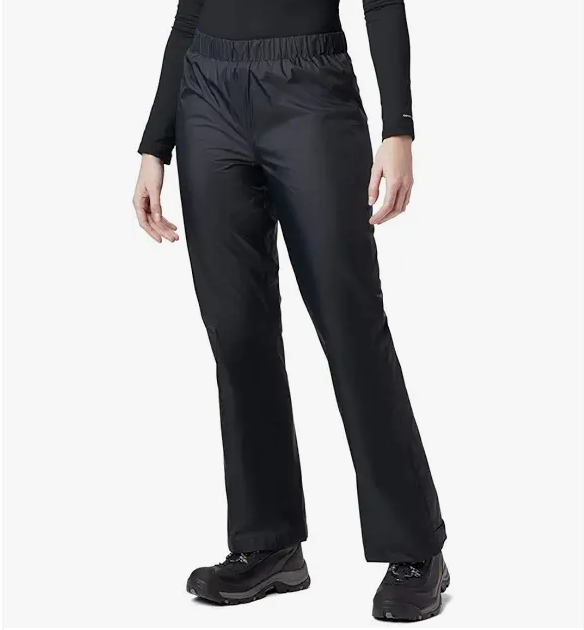
These Columbia Storm Surge rain trousers (women’s)
For those who’d rather not be soaked and shivering in the latest Dutch rainstorm, these trousers offer a high-quality alternative to waving a magic wand and staying dry 24/7.
Plus, with Columbia’s breathable Omni-Tech construction, the interior of these pants is kept warm and comfortable — even in cold weather.
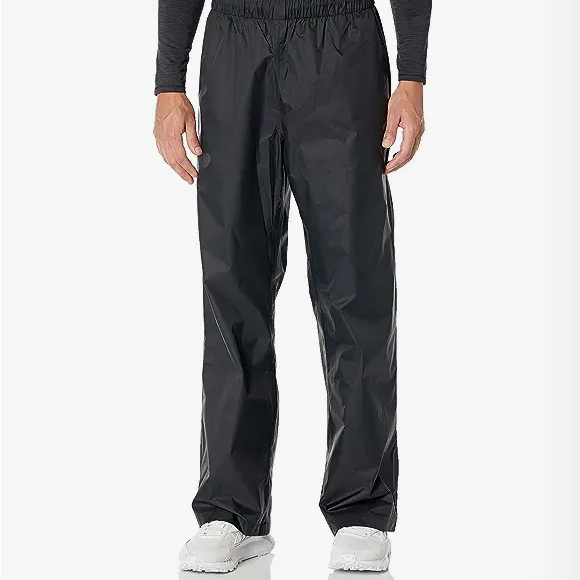
These Columbia Rebel Roamer rain trousers (men’s)
If the thought of trudging through the office with damp legs after cycling through a Dutch rainstorm fills you with dread, these trousers might be just what you need to stay dry.
With fully sealable seams and an adjustable drawstring waist, they’re ideal for battling the gusty wetness that the Netherlands has to offer.
At the end of the day, if you have the right clothes, your entire winter experience will be warmer, dryer, and significantly more comfortable.
How to avoid seasonal depression
The lack of sunlight during winter can affect your health in various ways, but one which is important to be aware of is Seasonal Affective Disorder (SAD). In short, this is a depressive disorder triggered by a lack of light.
READ MORE | Seasonal depression in the Netherlands: what to do when feeling SAD
If you show any symptoms of SAD, consulting your GP is, of course, important. But there are some simple things you can do to help prevent this from happening in the first place:
- Try to get as much sunlight as possible. If the sun breaks through and you have a lunch break or a moment to spare, put on that coat and head out there!
- Physical exercise. Anything from walking, dance classes, gym or yoga will help.
- Light therapy. You can buy SAD lamps which mimic sunshine that you can have at your desk as you work through the day.
- Get into a sleep schedule and follow it. This will help your body adjust to waking up in the dark and feeling tired at the right time.
- Vitamin D supplements help replace the vitamins you would have otherwise been getting from the sun.
- Socialise and stay connected. Calling family and friends back home really helps, but making new friends here will also help you through the colder months.
How to make the most of a Dutch winter
Don’t be afraid; your first Dutch winter may seem daunting, but it can actually be a lot of fun!
Christmas in the Netherlands is a whole new experience for those from the southern hemisphere. This is especially true of Christmas markets, which have various delicious food and drinks you need to try!

If you have kids, the Dutch have mastered many family-friendly winter activities. Outdoor ice rinks pop up all over the country, which are great fun regardless of your age. Even better — some Dutch canals freeze over for ice-skating, too!
READ MORE | Seven breathtaking places to hike around the Netherlands this winter
The Dutch are pros at staying inside in the winter, which makes cold weather the perfect time to embrace the Dutch concept of gezellig.
What would you recommend for surviving the Dutch winter? Share your tips in the comments below.





With climate change I doubt we’ll ever go back to really cold winters. Hopefully we’ll have some snow this year!